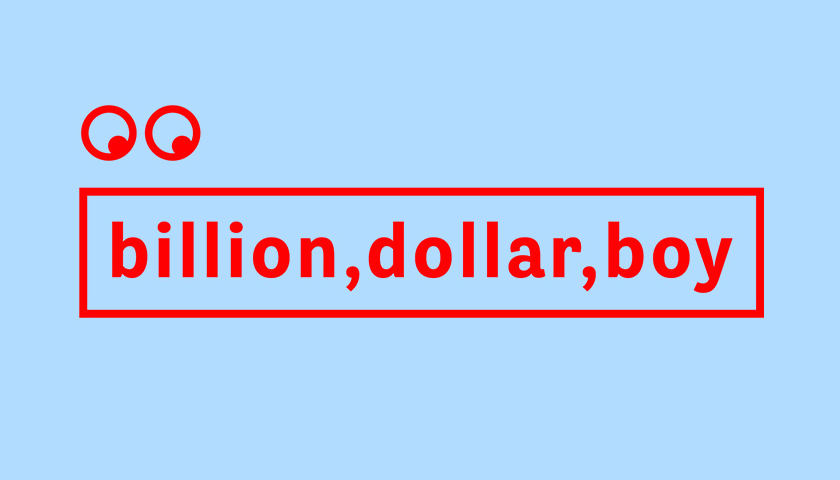Billion Dollar Boy, the leading global creator agency, today announces the launch of a new research report, AI as a Creative Muse: How Generative AI is Influencing the Creator Economy, designed to assist brands in understanding how generative AI is impacting the sector and the future of advertising strategies.
The report is powered by practical insights from real world generative AI creator campaigns in partnership with Versace and Xiaomi, expert analysis from industry thought leaders, and independent research canvassing opinion from 4,000 consumers, 1,000 content creators and 1,000 senior marketing decision makers across the US and UK.
The report explores perceptions of generative AI’s ability to disrupt the creator economy; investigates demographic nuances influencing its adoption; and analyses the challenges it poses and brand opportunities it offers. The survey reveals new findings across a range of themes including:
Generative AI as a Positive Disruptor Creating Brand and Creator Opportunities
-
Majority support: Marketers (75%) and creators (69%) overwhelmingly believe generative AI will positively disrupt the creator economy. They will need to convince consumers who are more sceptical – although twice as likely to agree (34%) that the technology will positively disrupt the creator economy than disagree (18%).
-
Demographic differences: Men, younger demographics and Americans are more enthusiastic about generative AI positively disrupting the creator economy, than women, older generations and Brits, who are more sceptical.
-
Enhanced creative output: Support for generative AI stems from the belief that it will improve the quality (marketers 80%, creators 74%, consumers 35%) and diversity (marketers 82%, creators 74%, consumers 35%) of creative assets.
-
Stronger ROI: With generative AI producing a new style of creator content that’s cutting through social media feeds, three in five (60%) consumers say they prefer it to traditional creator content while four in five (81%) creators also report better engagement on their generative AI content.
-
More creator opportunities: Generative AI is creating efficiencies for creators who overwhelmingly believe generative AI will alleviate their workload (79%) and accelerate content creation processes (82%), allowing more creators to join the market, increasing brand partnership opportunities and potentially alleviating creator burnout.
Effectiveness of AI Encouraging Increasing Adoption and Investment
-
Adoption is high: Almost every marketer (92%) has commissioned generative AI creator content, while a similar proportion (91%) of creators have used generative AI to create content too. The report also reveals the most popular tools and usage frequency.
-
Increasing ad spend: The effectiveness and popularity of generative AI creator content has driven three quarters (70%) of marketers to increase spend on generative AI creator content last year, with another 70% planning to increase spend further this year.
-
Marketing budget shake-up: The increased spend on generative AI creator content will be sourced from other marketing channels, according to two thirds (65%) of marketers.
-
Increased creator earnings: A majority of creators (78%) are convinced their use of generative AI will increase their earnings; supported by two thirds (65%) of marketers who are willing to pay more for creator content designed using generative AI compared to traditional creator content.
Addressing the Challenges
-
Quantity over quality concerns: Four in five creators believe generative AI will lead to a rise in the number of content creators (79%) and a rise in the quantity of creator assets produced (86%).
-
Creator-marketer tensions: Marketers have higher expectations than creators for generative AI’s potential to alleviate workload and lower expectations around pay increases.
-
Regulation and transparency: Overwhelmingly, consumers, marketers and creators (87%+) support clearer regulation of generative AI in the creator economy. However, while transparent content labelling was among the top two concerns for consumers and marketers, it was the second least important for creators, raising concern as three in five (61%) consumers are unsure whether or not they’ve engaged with generative AI creator content.
The release of this new research report follows the recent launch of Muse, Billion Dollar Boy’s dedicated in-house innovation unit exploring the impact of emerging technologies shaping the creator economy.
Becky Owen, Global Chief Marketing Officer of Billion Dollar Boy, adds:
“Our research reveals strong appetite for generative AI in the creator economy, with the consensus that it’s improving the quality and diversity of creator content – supported by strong performance results – while also providing efficiencies and solutions. It can alleviate workload; offer cost effective production at speed and scale; reinvigorate product-centric assets; and combat creative fatigue.
“But concerns around the misuse of the technology mean brands and creators must implement it responsibly and intentionally. In the accelerating race to invest, those who do so strategically will reap the rewards as we move out of the early adoption phase and into an era focused on refining generative AI creator content and exploring new innovations.”
Thomas Walters, Europe CEO and co-founder of Billion Dollar Boy, comments:
“Generative AI adoption in the creator economy is high – not just across creator output. We’re seeing it deliver meaningful impact on client outcomes, alongside increased scalability, efficiency, and agility – key attributes in a world where the demand and expectation for content, trend reactivity, and effectiveness for brands is increasing. It’s only just the tip of the iceberg, making it an exciting time for the creator economy – which has become a leader in helping its partners address their business challenges – as well as the AI revolution at large.”
